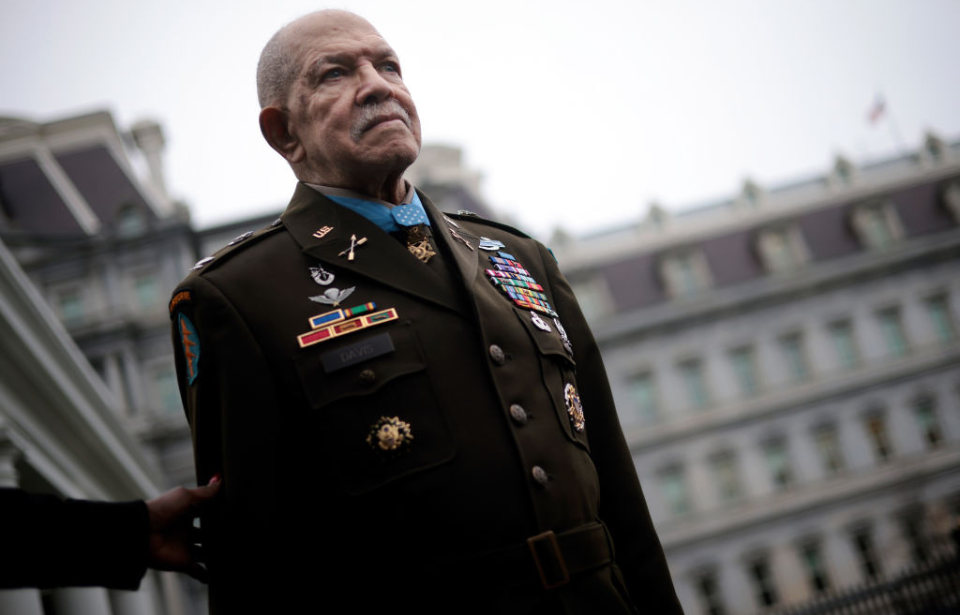Paris Davis’ entry into the US Army
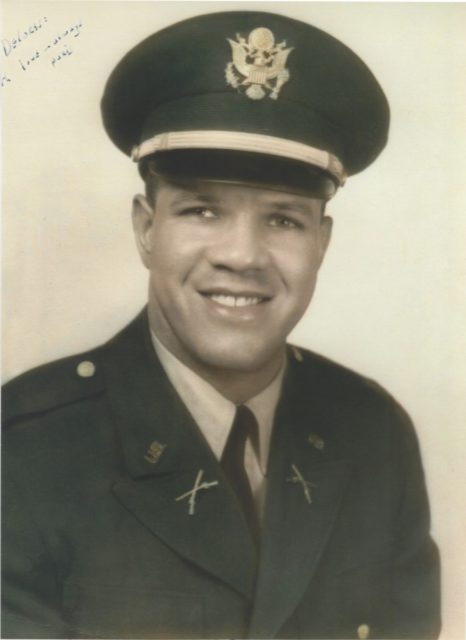
Paris Davis was born in Ohio on May 6, 1939. Raised in a working-class family with a father employed at a foundry, Davis developed a strong interest in both the military and athletics from a young age. While studying at Southern University in Louisiana, he balanced his love for both, earning a political science degree through an ROTC scholarship while also excelling on the football field, where he gained recognition as an All-American halfback.
In 1962, Davis enlisted in the U.S. Army. His sharp intellect and athletic abilities helped him quickly advance through the ranks. He became one of the first Black officers in the Army’s Special Forces, a major achievement during a time when racial barriers were prevalent.
As a captain in the 5th Special Forces Group, Davis was well aware of the obstacles he would face. His commander advised him that, due to his race, he would have to work harder to earn the respect of his men. Davis embraced this challenge head-on, establishing firm expectations of discipline and respect. He made it clear that any disrespect, including not addressing him as “sir,” would have serious repercussions.
Deployment to Vietnam
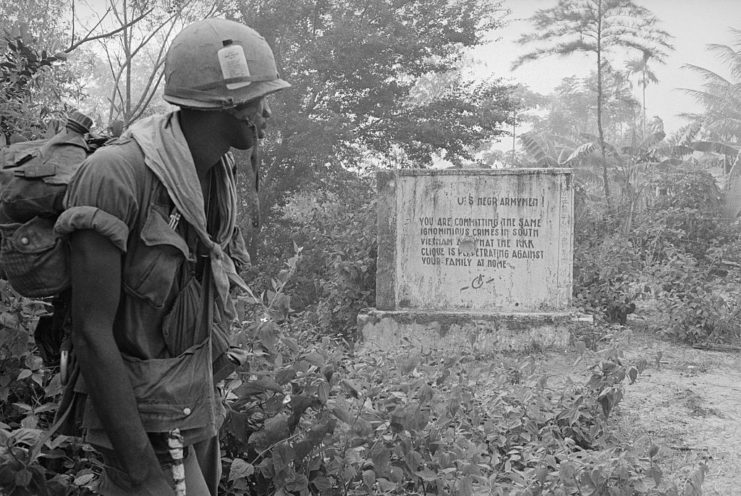
In early 1965, Paris Davis and his Special Forces team deployed to Vietnam, parachuting into a secluded farming region in Bình Định province—a key corridor for Viet Cong and North Vietnamese Army movements. Their mission centered on training local volunteers to resist enemy forces.
Davis’s courage was soon put to the test in May of that year when he rescued an aviation fuel truck driver. An aviation fuel truck in Bồng Sơn overturned and pinned its driver inside. Disregarding both the driver’s pleas and the imminent danger, Davis sprinted to the wreckage and hauled the man to safety. Moments later, the truck erupted in flames.
His heroic rescue did not go unnoticed; Davis was awarded the Soldier’s Medal in 1968 for his selfless actions that day.
Paris Davis didn’t want to leave any man behind
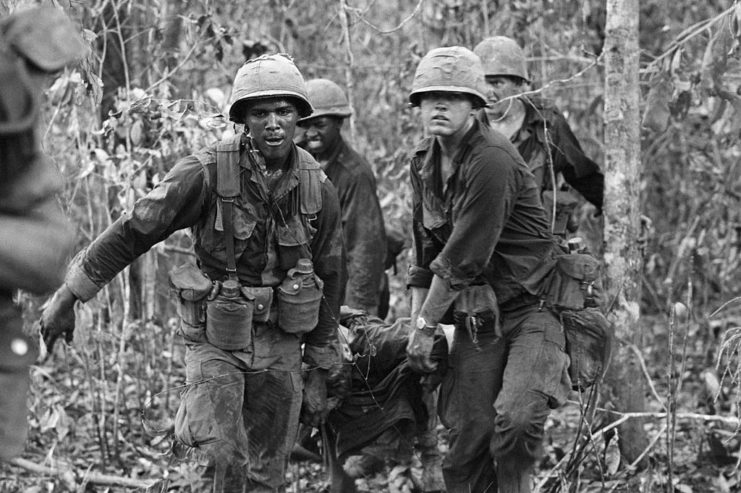
Paris Davis didn’t wait long to further distinguish himself in Vietnam, risking his life for his men during an enemy attack in June 1965. The day began early for him, the 12 servicemen with the 883rd Regional Forces Company and the accompanying 90 South Vietnamese volunteers. They’d been tasked with conducting a surprise raid on an NVA camp deep in the jungle.
Davis and Master Sgt. Billy Waugh stormed into the enemy commander’s hut and killed him at close range. At the same time, the other members of the group threw grenades and shot their rifles. The majority of the NVA troops were caught unawares and killed in their cots. Some, however, heard the commotion and escaped into the jungle.
Considering the raid a success, Davis and his men started making their way back to camp. That’s when they heard the sound of bugles, signaling an impending ambush by the NVA – and a rather large one, at that. The team was pushed into a rice paddy with no cover as sniper fire rained down on them. Three bullets struck Waugh, while another hit the medic in the head. A mortar blast also knocked out the group’s weapons specialist.
Frequently exposing himself to enemy fire, Davis rallied his unit and directed their own small arms fire throughout what became a 19-hour standoff. He himself suffered severe injuries to his leg and hand, with a grenade blast practically tearing off his trigger finger. Despite his injuries, he continued to evacuate his wounded comrades, even as air support arrived and dropped bombs over the area. Among those he rescued was Waugh.
A colonel watching the engagement from above ordered Davis to seek shelter, but he refused, as it meant leaving behind his men. He frequently shot his M16 rifle with his pinkie finger while sprinting to the injured and dragging them to safety. When relief arrived, he refused medical aid for himself until everyone had been evacuated. It’s widely believed his efforts ensured each member of his team made it out alive.
Recommended for the Medal of Honor
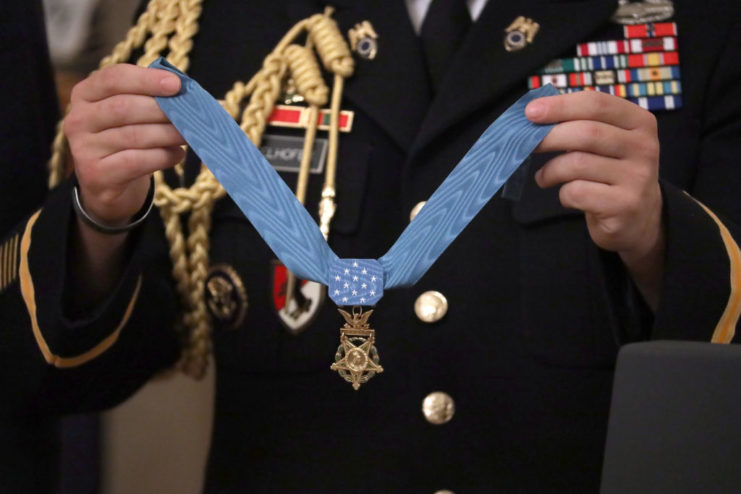
Paris Davis had already earned high praise for his heroism, receiving both the Purple Heart and Silver Star for his valor in Vietnam. But to his commanding officer, Maj. Billy J. Cole, those honors weren’t enough. Cole was convinced that Davis’s actions—especially his refusal to leave wounded men behind in the face of relentless enemy fire—deserved the Medal of Honor. He submitted the nomination without delay. When no response came, Cole checked in, only to learn the paperwork had inexplicably vanished. Undeterred, he filed the nomination again.
But the second attempt also disappeared. As the years passed, Davis’s fellow veterans began to grow suspicious. Many began to believe that Davis was being skipped over for the honor because of his race.
Davis never let that deter him. He continued his military service with honor, eventually taking command of the 10th Special Forces Group. After retiring as a colonel in 1985, he remained active in public life, founding The Metro Herald, a Virginia newspaper that celebrated Black voices and civil rights milestones.
His contributions finally began receiving broader acknowledgment decades later. In 2019, he was inducted into the Ranger Hall of Fame—one of many honors that had long been overdue for a man whose life exemplified courage, leadership, and unshakable resolve.
Paris Davis is presented with the Medal of Honor
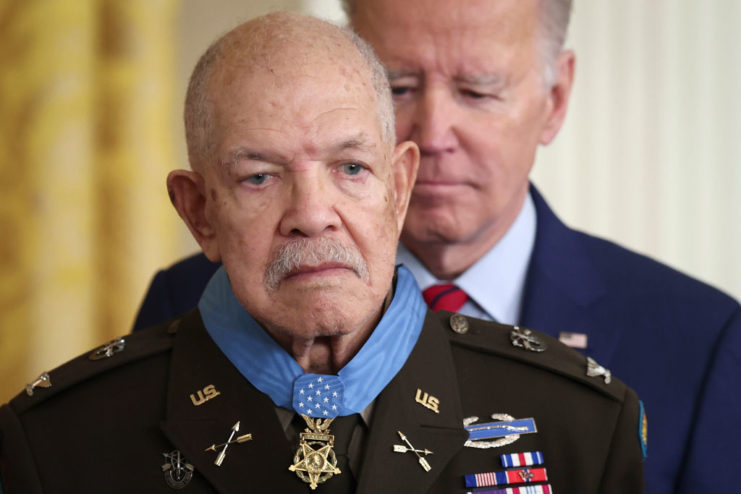
Some two years later, it was announced that then-Acting Defense Secretary Christopher Miller had ordered an expedited review of the Green Beret’s lost Medal of Honor nomination. Despite the deadline being March 2021, there was little in the way of updates. That is, until November 2022, when a Pentagon official told Military.com that the nomination had been approved by Gen. Mark Milley, chairman of the Joint Chiefs of Staff.
Paris Davis’ nomination was passed to Defense Secretary Lloyd Austin, who approved it and sent it to President Joe Biden’s desk for further approval.
On March 3, 2023, nearly 60 years after Davis’ heroics in Vietnam, he was awarded the Medal of Honor at a ceremony held at the White House. Speaking at the presentation, Biden called the veteran a “true hero” and “everything this medal means […] brave and big-hearted, determined and devoted, selfless and steadfast – America.”
